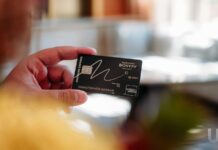Dos and Don’ts When Dealing with Fake Currency: If you ever receive a counterfeit bill, you must act swiftly and appropriately to avoid negative repercussions. If not managed properly, counterfeit notes can easily be passed off as genuine, but they can lead to legal issues and financial losses.
What is the penalty for an offence involving counterfeit currency?
Under IPC Section 489C, any attempt to circulate counterfeit currency with knowledge that it is counterfeit is punishable by a fine or imprisonment ranging from seven years to life, or both.
Dos and Don’ts When Dealing with Fake Currency: Keep Your Cool and Do Not Pass It
The first and most important measure is to maintain composure and avoid panicking. It is unlawful to knowingly pass on counterfeit currency. If you receive a counterfeit bill, do not pass it on to anyone else. Keep the counterfeit bill separate from your other cash and avoid using it in transactions.
Analyse the Note Carefully
Examine the note closely and compare it to an authentic note of the same denomination. Consider differences in hue, texture, and pattern. Watermarks, security threads, and color-changing ink are identifying characteristics of authentic banknotes that counterfeiters cannot replicate precisely.
Note the counterfeit currency.
Contact your local police department. Inform them that you have received a counterfeit note and provide as much detail as possible, including the serial number and a description of the person who gave it to you.
Keep the Note
Do not give the fake bill to anyone other than a law enforcement officer. Retain the counterfeit note and give it to the authorities when they arrive. Keep track of when and where you received the note, as well as any other transaction details you can recall.
Prepare Yourself to Lose the Money
If you receive a counterfeit bill, it is unlikely that you will obtain your money back. Banks and retailers will not accept counterfeit currency, nor can it be exchanged for genuine currency. Consequently, it is essential to be vigilant when handling currency, particularly in high-risk areas.
Dos and Don’ts When Dealing with Fake Currency: What if you receive a counterfeit bill at an ATM?
However, if a counterfeit bill is dispensed from an ATM, you may be eligible for a refund. After spotting counterfeit currency notes at an ATM, you should promptly record them in the ATM’s CCTV camera by displaying the front and back of the note. Inform the ATM’s security officer about the counterfeit bill. Be sure to retain the receipt from the ATM transaction. Deposit the counterfeit currency at the bank branch. The consumer will receive an authentic note instead of a counterfeit one. Show the bank the ATM transaction receipt. If counterfeit notes are dispensed from an ATM, banks must refund the consumer as soon as possible, per RBI regulations. If this is not accomplished, the RBI may take action against the relevant bank.
Therefore, if you receive a counterfeit note, you must remain calm, thoroughly examine the note, report it to the authorities, keep the note, and be prepared to lose the money. By taking these measures, you can prevent the proliferation of counterfeit currency and avoid legal repercussions. Always exercise caution when handling cash and disclose any suspicious behaviour to the authorities.




